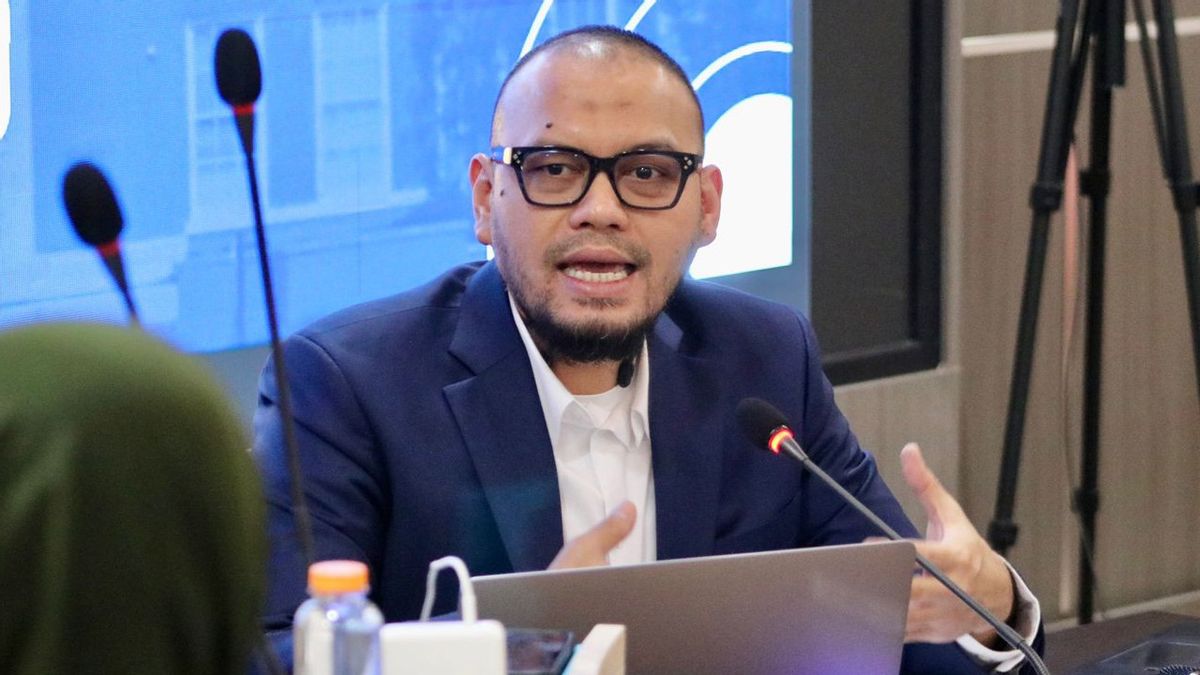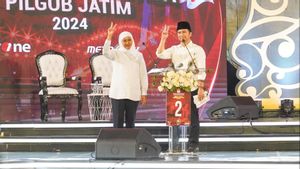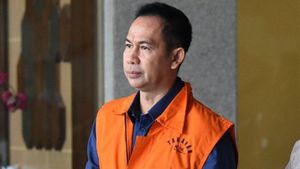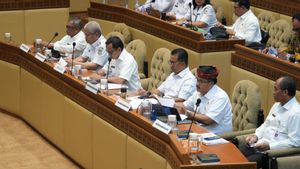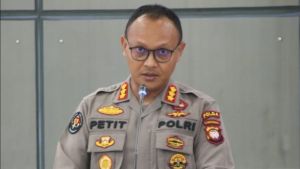JAKARTA - The political commitment and seriousness of the DPR RI for the period 2024-2029 to make eradicating corruption a priority agenda is again questioned. This is in line with the political stance of parliament that does not include the Asset Confiscation Bill (RUU) in the list of proposals for the 2025-2029 National Legislation Program (Prolegnas).
In fact, the existence of the Asset Confiscation Law is a very essential instrument in eradicating corruption in Indonesia.
Law observer and anti-corruption activist, Hardjuno Wiwoho, sees that the DPR's lack of seriousness in discussing this bill is increasingly visible when a discourse on changing the diction appears in the bill from 'trapping' to'recovery' of assets. The reason is, changes in diction can eliminate the main spirit of the bill.
"Because for me, the essential element of this bill is about Asset Confiscation and not only on asset recovery without paying attention to the origins of these assets. What we are after, where did the assets come from," he said in Jakarta, quoted on Sunday, November 10.
However, Hardjuno admitted that he did not want to be trapped in the polemic about the name or title of the bill later. Most importantly, this law is an important instrument to strengthen the state's steps in confiscating assets suspected of being the proceeds of crime without having to go through a long criminal process.
"Honestly, I don't want to get caught up in the polemic of the diction. The most important thing for me is that the bill is passed into law. I challenge the DPR, let's immediately ratify the bill into law in the near future to provide a deterrent effect for corruptors," he explained.
Furthermore, Hardjuno hopes that this bill will become an effective tool to demand the transparency and accountability of state administrators. Therefore, the Asset Confiscation Bill was immediately passed without being trapped in a diction polemic alone.
According to Hardjuno, this fear may stem from the complexity of the Non-Conviction Based Asset Forfeiture (NCB) concept carried out in the bill. In developed countries such as the United States and Britain, NCB has been implemented effectively to confiscate assets suspected of being linked to crime without waiting for a criminal verdict.
In the United States, for example, the government can confiscate suspected assets from the proceeds of criminal activity through the Civil Asset Forfeiture Reform Act, which allows civil confiscation of assets in cases where criminal evidence is difficult to obtain.
In the UK, the government can even confiscate property suspected of being linked to organized crimes through a similar mechanism, which is very useful in dealing with cases with indirect evidence or witnesses who are reluctant to testify.
Hardjuno emphasized that Indonesia must learn from these countries, where the mechanism for confiscation of civil-based assets has proven to be very effective in fighting corruption and complicated financial crimes.
"If the DPR really understands the benefits of this bill, they should be more progressive and brave in entering the Asset Confiscation Bill into the Prolegnas," he said.
With supporting regulations, the state can take back the misappropriated public wealth, even in complex cases such as the finding of Rp1 trillion in the house of a former Supreme Court judge.
Hardjuno also reminded that the discussion of this bill aims not only to strengthen the return of state assets, but also to strengthen the rule of law in Indonesia.
He highlighted the importance of high proving standards in the application of NCB to protect civil rights while still giving the state the authority to confiscate suspicious assets. According to him, the principle of prudence in the implementation of NCB, as done in the UK, can be adopted in Indonesia so that this mechanism is in line with human rights principles and fair legal principles.
BACA JUGA:
In the midst of state losses due to corruption reaching hundreds of trillions of rupiah, Hardjuno emphasized that the Asset Confiscation Bill could be a solution to accelerate asset recovery. Based on data from Indonesia Corruption Watch (ICW), state losses due to corruption restored through the current criminal mechanism include only a small part of the total loss.
"With this bill, the state is expected to take firmer and more efficient steps in confiscating corruption assets, which will directly strengthen the public budget for the benefit of the wider community," said Hardjuno.
Hardjuno emphasized that the postponement of the discussion of the Asset Confiscation Bill was a loss of opportunities for Indonesia to strengthen efforts to eradicate corruption.
"We need courage and a deeper understanding from the representatives of the people so that this regulation can be realized immediately," explained Hardjuno.
"With this bill, Indonesia can build a legal system that is more resilient in dealing with corruption, as well as strengthen public confidence in the country's commitment to safeguarding public wealth from criminal acts," concluded Hardjuno.
The English, Chinese, Japanese, Arabic, and French versions are automatically generated by the AI. So there may still be inaccuracies in translating, please always see Indonesian as our main language. (system supported by DigitalSiber.id)
